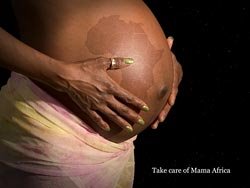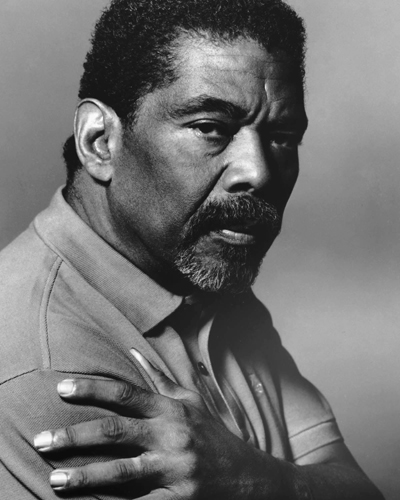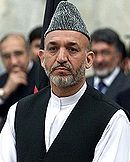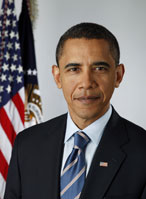
This week I had the opportunity to attend a lecture at Northwestern University titled “Do We Still Need Affirmative Action”. It was part of the MLK Day commemoration. As a preface I would like to add that the description of this lecture was : We have just elected the nation’s first African-American president, other people of color occupy very high posts in politics, business, medicine, and other arenas. So have we progressed enough to no longer need affirmative action and other initiatives to promote diversity in education and business, or do we still have a long way to go? This panel will provide a point and counterpoint in the argument of whether affirmative action is still needed contemporarily.
Below is a list of the panel members:
* Professor Stephen Presser, Esq. – Raoul Berger Professor of Legal History, Northwestern Law
* T. Shawn Taylor – Freelance reporter, former business reporter, Chicago Tribune
* Dr. Arin Reeves, JD, PhD – Diversity Consultant and President, The Athens Group
* Frenita Tolson, Esq. – Visiting Assistant Professor, Northwestern Law, Race and the Law
Moderator: Derrick Blakely, Anchor, CBS 2 Chicago
I entered the lecture hall with preconceived notions regarding affirmative action and looked around to count exactly how many minorities were attending this discussion. I realize that others may consider my behavior as racist,but I have always been a believer that those impacted by certain policies should be heavily involved in such discourse. Ironically this audience was very diverse, many of them students from the law school, and so I contemplated a bit on each individuals reasoning for attending the lecture.
I then set down and scanned the panel participants. The first category in my mind was race. I use the term category because this was a term that was repeated throughout the discussion and by an upset audience member who argued that affirmative action is a categorical representation of society that hinders everyone. But, I will address this further in my analysis. Again, others may consider my panel review as a form of racism but I could have argued again that it was only fair that African Americans and Hispanics be vocal in such dialogues.
The truth is I believe I was being racist. I wanted to have this discussion with only minorities. In understanding my own form of racism I realized that we are all racist. We all have biases, and we may not address them with others but they are aggressively swimming through our minds. This reasoning, and the dialogue that proceeded led me to further affirm my support of affirmative action. One white person. Two Black people. A person who I believed may be Indian. Do I consider that brown?
Steven Calabresi touched on two paramount issues in regards to affirmative action. The first was educational reform and the second was institutions of government. To be fair Steven Calabresi is a law professor and I believe he has taken the time to carefully investigate the legal ramifications, if any, of affirmative action within the United States educational system. He stated that he still believes affirmative action is needed, but was a supporter of charter schools and competitive education. He also argued for racial diversity in government institutions ( specifying judges, senators, and law enforcement). Mr. Calabresi said he was skeptical about some affirmative action employment programs, and disagreed with President Elect Obama’s stance on affirmative action not being necessary for individuals like his daughters who were already living a privileged lifestyle.
I completely agree with Mr.Calebresi’s analysis that our education system needs to be reevaluated and reformed before we can even begin to consider affirmative action as a policy of the past. However, I have never been a supporter of charter schools primarily because of the inconsistency of education, various hiring standards for teachers, and inability to maintain teachers’ collective-bargaining rights. I believe that these discrepancies in fact hurt the quality of education that most students receive. I also would like to note that often times while charter schools are offered as an alternative to public schools there is not enough evidence to suggest that students perform better at such institutions. The disparity in funding such schools also bears a burden on our public school system, and does not even begin to address the quality of education provided by schools that are run as for profit institutions. Statistically speaking minorities are the ones who suffer from such reforms as noted in the Status and Trends in The Education of Racial and Ethnic Minorities.
To further address my biases, my second review of the panel was categorizing them into sexes. I realized that Mr.Calabresi was the only male panel member. Three women and one man.
Ms. Taylor quoted former President Clinton in her dissection of affirmative action. “Mend it, don’t end it” she said. She also addressed the naming bias study, which showed employers were fifty percent more likely to interview white -sounding name applicants than black- sounding name applicants. Ms.Taylor also recognized that economic downturns pushes biases to kick in, and agreed with Mr.Calabresi that we are far away from equality when it comes to education, and would urge government to correct our funding programs for K-12 education. She made a point of opposing the race neutrality argument, arguing that it goes against affirmative action.
Dr. Reeves took a more legal stance in addressing affirmative action, urging us to look at the difference between law, policies, politics, and individual behavior when discussing affirmative action. She noted that law can not legislate behavior, and further recognized that both President Elect Obama and Senator Clinton steered away from the discussion of affirmative action during the campaign. She argued that we can not use a trailblazer, Obama, as an example of equality. Interestingly Dr.Reeves also acknowledged that people of color and women have our own issues with affirmative action, and suggested we would need to become comfortable about discussing race in order to discuss affirmative action.
My biases led me to ask who was against affirmative action. Dr.Reeves- the supposed Indian seemed to be supporting affirmative action. She is brown correct? And a woman. I understood that I probably had more in common with Dr.Reeves because I too am an immigrant, re-assuming racism. I too had questioned affirmative action, and understood her saying “I want to be very clear, I understand affirmative action. But I hate it! I hate it! Why do we have to tell someone to choose between a woman and a black person?”
Dr.Reeves went on to recognize that this conversation was about privilege. “The privelege of asking a white man to pick an issue: Woman. Race. LGBT.” She argued. She asked the audience to challenge the conversation itself. “Why is it okay to choose between race and class?” She asked.
I did not know the answer because I have never chosen. I have been black my whole life. I have juggled back and forth from what I consider middle to low class since I was born. I suppose I never had that privilege, and honestly would not know what to do with it.
Ms. Tolson asked us to look at trailblazers as the standard. She also suggested that affirmative action was not that controversial. She insisted that it was still necessary if you simply looked at the statistics. “Majority of African Americans are from lower economic backgrounds. African American women have the highest risk of contracting HIV/Aids.” She stated. She asked that we dictate the affirmative action debate on statistics in the future, implying that her arguments would hold ground.
I realized that this discussion regarding affirmative action was not a debate on the topic, but rather the grounds by which a discussion was needed and the issues that needed to be resolved before such a debate could be had. But, then there was my racism. I imagined that had I simply ran into any of the panelists on the street my instinct would be to question their race. If I read their name my instinct would be to question their ethnicity. Was I a part of the problem? Was I categorically placing society as a way to deal with my own biases? Dr.Reeves reminded us that categories were started by white men; those who had the privilege of naming and stipulating such categories. I admit knowing this gave me a sense of self-assurance that perhaps my own racism was a result of being under priveleged. I recalled the Caucasian man who at the end of the discussion asked “Where was the debate?!”.
In his defense there was no opposing view, but there were concerns that could lead to opposing views. For example where does the white woman stand when it comes to affirmative action? It reminded me of when I cringe at the word feminist. Am I a feminist? What does that even mean?
The moderator asked the panel specific questions regarding affirmative action. One included an Appalachian white woman from a low income background and a black man whose father was a neurosurgeon, both applying to the same law school with the same grades and test scores. He asked each person to decide who they would let in if they were the Director of Admissions and why. Ironically it was Ms. Taylor and Ms.Tolson who were willing to choose. Two black women choosing ? I thought about this . Ms.Tolson said she would choose the black man because of the discrepancies of male to female students in respects to law school. Ms.Taylor said she would choose the white woman because she felt that her overcoming such obstacles was a testament of her desire to improve her well being, she also assumed that the black male would probably be well off economically in the future due to his father’s profession.
Mr. Calabresi noted that these cases were very unlikely because there are various components that come into play when looking at an applicant for law school. He also suggested one cost of affirmative action is that we assume we are doing enough, rather then tackling the K-12 education. For example he noted college entrance exams, which he agreed were necessary but were often reflections of ones education.
This got me even more excited about the concept of reparations. Could one argue that affirmative action is a form of reparation? Is there a problem with offering reparations to other minorities as well? What about women? Perhaps I was giving ammunition to the affirmative action opposition but I realized that statistically speaking if we addressed education, employment, and diversity in government we would probably no longer need to argue for reparations let alone affirmative action. I believe it was Dr.Reeves who said she read a study that looked into how long it would take for “categorical minorities” like myself to no longer need affirmative action and it stated that would probably be in 400 years. I suppose in the meantime others will have their biases, similar to mine but silently. Until I also see no sign of such biases I will continue supporting affirmative action while try to address my own racism.
One black woman. Black. Woman. Ethnicity: African.


 I have been reflecting on the basis of war recently. This weekend I watched as many remembered the fallen soldiers of America’s wars, and wondered if in doing so were we memorializing war.
I have been reflecting on the basis of war recently. This weekend I watched as many remembered the fallen soldiers of America’s wars, and wondered if in doing so were we memorializing war.
 i was thinking that the world had gotten much better, with countries vowing to set aside differences and work with the new Obama administration. Sometimes i think i should stop reading the news. It’s like being stabbed and kicked down a hill as you roll over rocks and leaves, scarping flesh and cursing inflammatories into the air; hoping that where you land will be a sea of four leafed clovers waiting to be discovered. Maybe being a woman makes us a bit inferior physically but we make up for it by our intelligence and loyalty. i think being invincible is more attractive then being humiliated and tarnished for something we have no control over. Is it true that starting a sentence with the noun i is an assertion of oneself? Maybe it’s more a of a proclamation? That’s why some men hate when we do it. In that case perhaps placing a lower case i would make me less assertive. i have decided that Hamid Karzai is the Idiot of The Week.
i was thinking that the world had gotten much better, with countries vowing to set aside differences and work with the new Obama administration. Sometimes i think i should stop reading the news. It’s like being stabbed and kicked down a hill as you roll over rocks and leaves, scarping flesh and cursing inflammatories into the air; hoping that where you land will be a sea of four leafed clovers waiting to be discovered. Maybe being a woman makes us a bit inferior physically but we make up for it by our intelligence and loyalty. i think being invincible is more attractive then being humiliated and tarnished for something we have no control over. Is it true that starting a sentence with the noun i is an assertion of oneself? Maybe it’s more a of a proclamation? That’s why some men hate when we do it. In that case perhaps placing a lower case i would make me less assertive. i have decided that Hamid Karzai is the Idiot of The Week.
